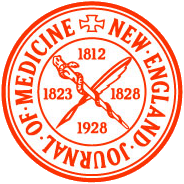New England Journal of Medicine: It’s Time to Transform Care for People with Complex Needs
August 24, 2016 · Jessica Briefer French
In the July 28, 2016 New England Journal of Medicine, Blumenthal et. al. identified improving care for high-need, high-cost patients as an urgent priority. We agree that understanding diversity, identifying programs that offer high quality and lower cost and speeding implementation are critical next steps.
At NCQA we are working hard to transform health care for people with complex needs. Our recent release of accreditation programs designed to ensure that organizations can demonstrate the structural capabilities to provider person-centered coordination of long-term services and supports are among our first steps to promote this transformation. We are simultaneously developing quality measures especially relevant to this population, that focus on what matters most to people. Driving these efforts is our belief that we need to go beyond traditional clinical evidence and should focus on person-centered outcomes. Our rationale is threefold:
- Single-disease focused guidelines don’t work for people with complex needs;
- Person-centered care focuses on what is most important to the person receiving care; and
- Person-centered outcome measures are needed to accelerate transformation.
Single-Disease Focused Guidelines Don’t Work for People with Complex Needs
For 25 years, NCQA has been a leader in driving improvement in health care quality. Evidence-based clinical guidelines have laid the foundations for our widely used measures and programs; however, they are insufficient for people with complex needs. Few guidelines address the interplay of multiple chronic conditions and functional impairment, and none account for the unique values, goals and preferences that individuals hold. Consequently, we need an approach to health care that focuses on what is most important to people. And, although such an approach may be most salient to people whose complex needs are poorly addressed by single-disease focused guidelines, we think a person-centered approach to care, that reflects individual values, goals and preferences, is good for everyone.
Person-Centered Care Focuses on What is Most Important to the Person Receiving Care
With the support of The SCAN Foundation and the John A. Hartford Foundation*, NCQA has just released three new evaluation programs for organizations that serve people with complex needs, specifically, those who require long-term services and supports for assistance with activities of daily living, such as eating, bathing, dressing and toileting. The Accreditation of Case Management for Long-Term Services and Supports for community-based organizations that coordinate long-term services and supports, and our Long-Term Services and Supports Distinction for NCQA-accredited health plans and managed behavioral health plans, lay out standards for providing person-centered assessment and care planning to ensure that peoples’ unique goals, and not just their list of clinical conditions, drives their care.
Person-Centered Outcome Measures Needed to Accelerate Transformation
While we expect that these accreditation and distinction programs will accelerate the implementation of person-centered approaches to care, we are also developing quality measures that capture the system’s ability to help people achieve the outcomes they identify as most important. Also with the support of the John A. Hartford Foundation and The SCAN Foundation, and working with a group of pioneering organizations, we are testing different approaches to collecting “person-centered” outcome measures at the point of care; measures that are individualized to the unique values and preferences of the person but standardized to allow quality improvement, monitoring and accountability.
NCQA fully agrees that urgent action is needed to better understand and support, people with complex needs in ways that improve their quality of life and experience of care, and to spread the implementation of successful models. We are proud to contribute to this important effort. We greatly appreciate the John A. Hartford Foundation and The SCAN Foundation’s invaluable support for this important work and urge all stakeholders to work together to advance this priority.
*The SCAN Foundation is dedicated to creating a society in which seniors receive medical treatment and human services that are integrated in the setting most appropriate to their needs. For more information, please visit www.TheSCANFoundation.org.
The John A. Hartford Foundation believes that its investments in aging experts and innovations can transform how care is delivered, lowering costs and dramatically improving the health of older adults. Additional information about the John A. Hartford Foundation and its programs is available at www.jhartfound.org.









